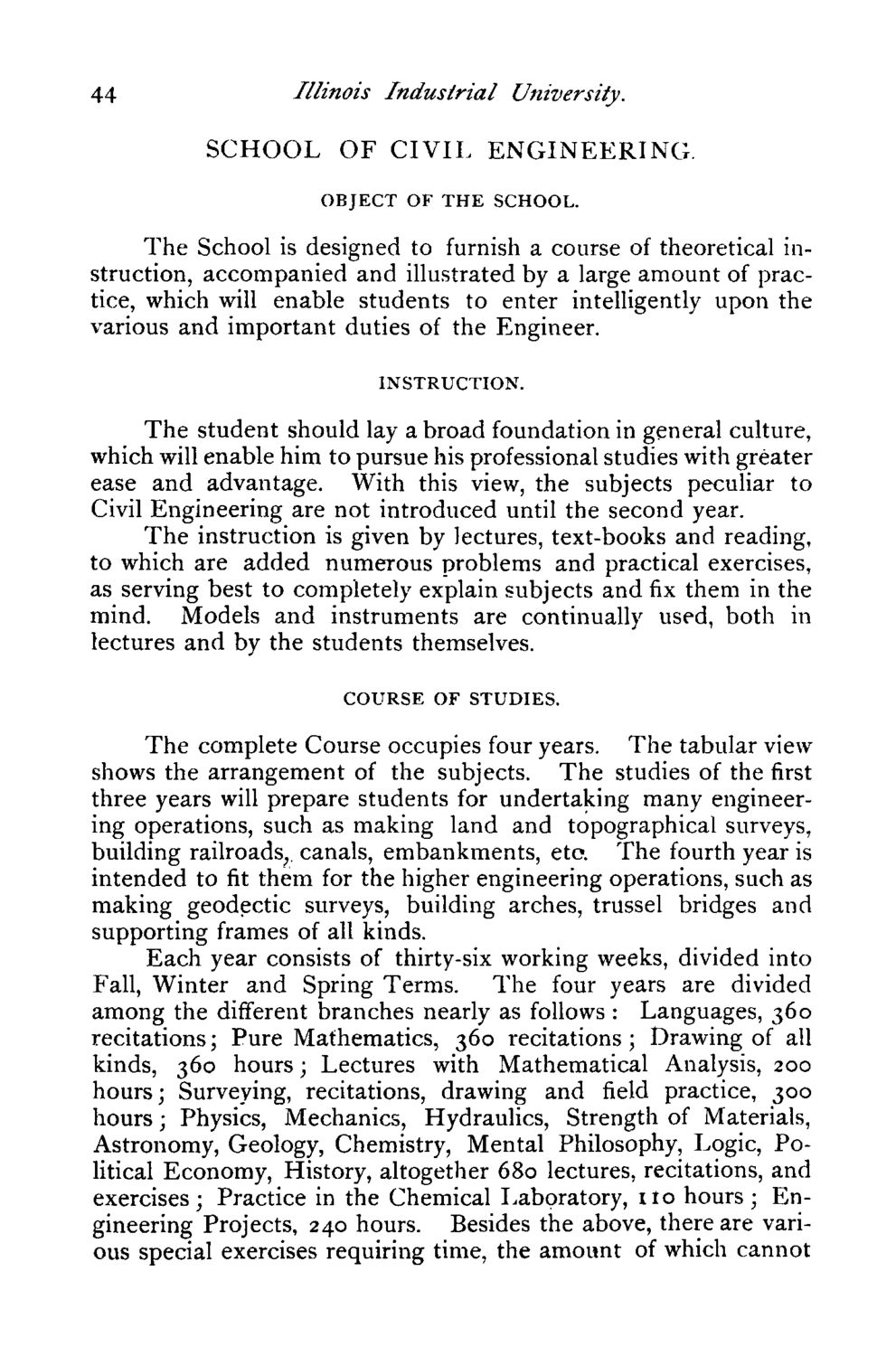| |
| |
Caption: Course Catalog - 1879-1880
This is a reduced-resolution page image for fast online browsing.

EXTRACTED TEXT FROM PAGE:
44 Illinois Industrial University. SCHOOL OF CIVIL ENGINEERING. OBJECT OF THE SCHOOL. The School is designed to furnish a course of theoretical instruction, accompanied and illustrated by a large amount of practice, which will enable students to enter intelligently upon the various and important duties of the Engineer. INSTRUCTION. The student should lay a broad foundation in general culture, which will enable him to pursue his professional studies with greater ease and advantage. With this view, the subjects peculiar to Civil Engineering are not introduced until the second year. The instruction is given by lectures, text-books and reading, to which are added numerous problems and practical exercises, as serving best to completely explain subjects and fix them in the mind. Models and instruments are continually used, both in lectures and by the students themselves. COURSE OF STUDIES. The complete Course occupies four years. The tabular view shows the arrangement of the subjects. The studies of the first three years will prepare students for undertaking many engineering operations, such as making land and topographical surveys, building railroads, canals, embankments, eto. The fourth year is intended to fit them for the higher engineering operations, such as making geodectic surveys, building arches, trussel bridges and supporting frames of all kinds. Each year consists of thirty-six working weeks, divided into Fall, Winter and Spring Terms. The four years are divided among the different branches nearly as follows : Languages, 360 recitations; Pure Mathematics, 360 recitations; Drawing of all kinds, 360 hours; Lectures with Mathematical Analysis, 200 hours; Surveying, recitations, drawing and field practice, 300 hours; Physics, Mechanics, Hydraulics, Strength of Materials, Astronomy, Geology, Chemistry, Mental Philosophy, Logic, Political Economy, History, altogether 680 lectures, recitations, and exercises; Practice in the Chemical Laboratory, 110 hours; Engineering Projects, 240 hours. Besides the above, there are various special exercises requiring time, the amount of which cannot
| |